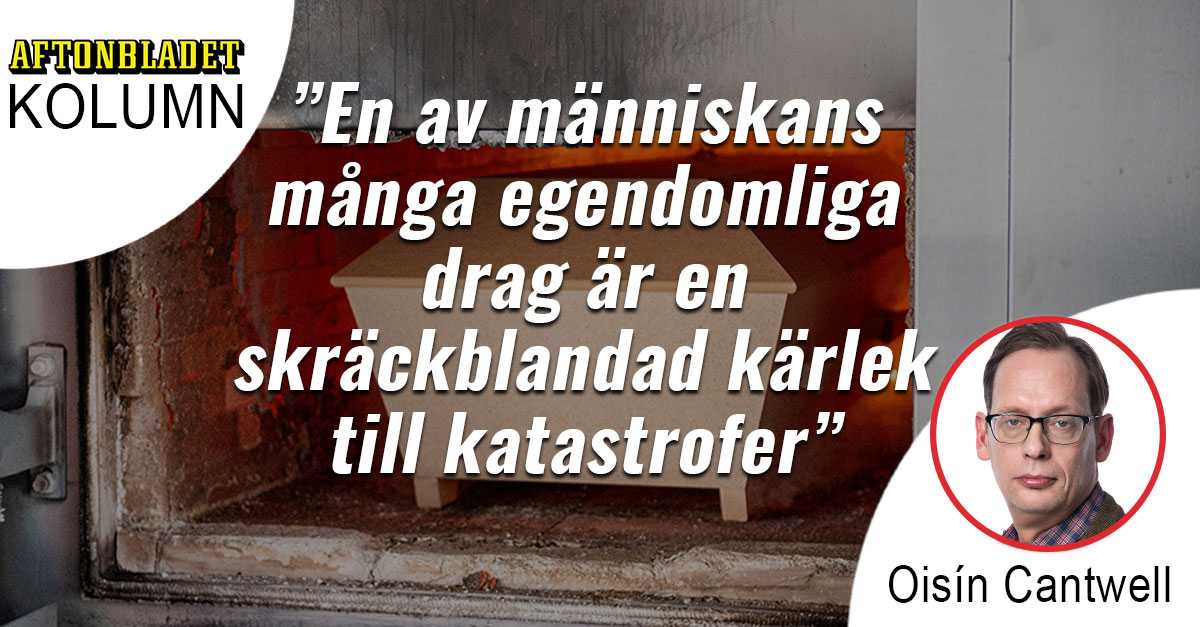not_James_Bond
Member
Thanks @Collden I translated it just fine;Where is this summary from? Cannot find it at ONS
I think this has only been reported by swedish sources so far.

Lika många dör ett år med svår influensa som under coronan
Pandemin har lett till ekonomisk katastrof för bransch efter bransch och en temporär lag som ger regeringen rätt att ta vår grundläggande frihet ifrån oss. Nu vwww.aftonbladet.se
Statistics Sweden has published its preliminary death figures for 2020.
The dark year when the corona paralyzed the world, countries were shut down, curfews were issued, in short, restrictions were implemented that had previously been reserved for wars, coups and plagues that threatened to wipe out civilizations.
A year that also contained curiosities I suspect posterity will have a tad hard to understand.
For example, opinion leaders who used their column space in large newspapers to instruct readers how to make their own mouthguards and the occasional publicist who, with alarmingly high blood pressure, stood on the barricade and roared that the borders would be closed.
Statistics Sweden has translated this odd year into statistics, something that Sweden is exceptionally good at. Result?
97,164 Swedes dead last year. These figures are somewhat uncertain, there is some backlog of registration and the figures believe that since last year's numbers are locked at the end of February, the death toll will have been written up by a number of hundred people.But it is an indication as good as any of what last year has to offer when death should be reworded into tables.
At the same time, it is statistics that do not tell us much if we do not compare with anything. Like the years before that.
Between 2015 and 2019, an average of 90,962 people died each year. In other words, the pandemic year died 6,202 more Swedes than in a normal year.
It is reasonable to explain this excess mortality with the virus that plagues us all to varying degrees. It is also reasonable to assume that the number of deaths would have been higher without all these restrictions surrounding us.
The Swedish Public Health Agency's survey shows that 9,309 Swedes died with covid-19 until 31 December, but these statistics include all those who have received a diagnosis and died within 30 days.This means that people who have been infected but died in a car accident can be registered. So do multi-sufferers and 89-year-olds. In other words, it is sometimes difficult to determine whether the virus was indeed directly killing.
But no matter how we twist and turn SCB's material, it is not possible to get around that 2020 was a miserable year with unusually much death.
However, not unique much. In 1993, 97,008 deaths were recorded. Nasty flu ravaged and effective vaccines were not yet properly established.
It can be pointed out that there were 156 fewer people than last year who died in those dismal 12 months almost 30 years ago.
But it can also be pointed out that more people live in Sweden now than then and that 1.1 percent of the population was buried in 1993, compared with 0.9 percent during the 2020 pandemic.This dimension is not unimportant. One of journalism's less successful moments last year was the alarmist headlines about "Deadliest November since Spanish Illness".
In the excitement, more than one editor forgot that Sweden's population has more than doubled since 1918.
Now, however, perspective is not journalism's primary discipline. Perspective is like the annoying fly that can't be waved away. Perspective tends to screw up the story.
Nonetheless, there is a need to ask yourself a few questions on the basis of these perspectives.Are all these human tragedies in the form of life's work gone up in smoke, bankruptcies, more or less wiped out industries, rising unemployment and exclusion a reasonable price to pay for a virus that has not led to more deaths than a malignant flu?
And was it really reasonable to bring up a law that gives the government and authorities the right to a comprehensive restriction of our fundamental rights?
Yes, the questions are rhetorical. They can be formulated in a completely different way. It is questionable whether a modern state, so much more developed than in the Spanish flu, should do everything in its power to combat a pandemic as far as possible.
The answer lies in the eye of the beholder. But I think that when historians, psychologists and behavioral scientists at some point in the future present their theses about what happened during the time of the virus, they will have an ingredient in their explanations common:One of man's many peculiar features is a fear-mongering love of disasters
Last edited:
